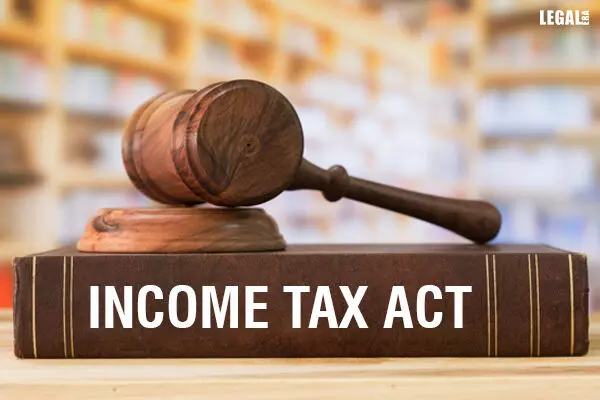- Home
- News
- Articles+
- Aerospace
- Agriculture
- Alternate Dispute Resolution
- Banking and Finance
- Bankruptcy
- Book Review
- Bribery & Corruption
- Commercial Litigation
- Competition Law
- Conference Reports
- Consumer Products
- Contract
- Corporate Governance
- Corporate Law
- Covid-19
- Cryptocurrency
- Cybersecurity
- Data Protection
- Defence
- Digital Economy
- E-commerce
- Employment Law
- Energy and Natural Resources
- Entertainment and Sports Law
- Environmental Law
- FDI
- Food and Beverage
- Health Care
- IBC Diaries
- Insurance Law
- Intellectual Property
- International Law
- Know the Law
- Labour Laws
- Litigation
- Litigation Funding
- Manufacturing
- Mergers & Acquisitions
- NFTs
- Privacy
- Private Equity
- Project Finance
- Real Estate
- Risk and Compliance
- Technology Media and Telecom
- Tributes
- Zoom In
- Take On Board
- In Focus
- Law & Policy and Regulation
- IP & Tech Era
- Viewpoint
- Arbitration & Mediation
- Tax
- Student Corner
- AI
- ESG
- Gaming
- Inclusion & Diversity
- Law Firms
- In-House
- Rankings
- E-Magazine
- Legal Era TV
- Events
- News
- Articles
- Aerospace
- Agriculture
- Alternate Dispute Resolution
- Banking and Finance
- Bankruptcy
- Book Review
- Bribery & Corruption
- Commercial Litigation
- Competition Law
- Conference Reports
- Consumer Products
- Contract
- Corporate Governance
- Corporate Law
- Covid-19
- Cryptocurrency
- Cybersecurity
- Data Protection
- Defence
- Digital Economy
- E-commerce
- Employment Law
- Energy and Natural Resources
- Entertainment and Sports Law
- Environmental Law
- FDI
- Food and Beverage
- Health Care
- IBC Diaries
- Insurance Law
- Intellectual Property
- International Law
- Know the Law
- Labour Laws
- Litigation
- Litigation Funding
- Manufacturing
- Mergers & Acquisitions
- NFTs
- Privacy
- Private Equity
- Project Finance
- Real Estate
- Risk and Compliance
- Technology Media and Telecom
- Tributes
- Zoom In
- Take On Board
- In Focus
- Law & Policy and Regulation
- IP & Tech Era
- Viewpoint
- Arbitration & Mediation
- Tax
- Student Corner
- AI
- ESG
- Gaming
- Inclusion & Diversity
- Law Firms
- In-House
- Rankings
- E-Magazine
- Legal Era TV
- Events
ITAT: ‘Commencement Of Activity’ Doesn’t Apply To Trusts Already In Charity Before Acquiring Provisional Registration

ITAT: ‘Commencement Of Activity’ Doesn’t Apply To Trusts Already In Charity Before Acquiring Provisional Registration
Notes that the assessee had applied on Form 10 AB within the prescribed period
The Pune, Maharashtra bench of the Income Tax Appellate Tribunal (ITAT) has directed the Commissioner of Income Tax (E) to treat the application filed by the assessee-trust, within the statutory limit, after verifying its eligibility for deduction under Section 80IA(4) of the Income Tax Act, 1961.
The Coram of Satbeer Singh Godara (Judicial Member) and Dipak P Ripote (Accountant Member) observed, “The words 'within six months of commencement of its activities' has to be interpreted so that it applies to the trusts/institutions, which have not started charitable activities at the time of obtaining the provisional registration. It is not for those that were already into charitable activities.”
The Income Tax Return (ITR) of the assessee was selected for scrutiny, wherein the CIT(E) rejected the assessee’s 08.04.2023 application filed in Form 10AB for approval under Section 80G. It was on the basis that the application was filed six months after the commencement of activities and hence was time-barred.
The tribunal noted that the assessee received the provisional approval under Section 80G(5) vide 09.07.2021 order for the Assessment Year 2021-2022 and 2023-2024 and the 22.09.2022 order from 2023-2024 to 2025-2026. Under12A (1)(ac), the assessee had approval on 30.01.2019.
From the Memorandum of Finance bill, ITAT noted that it was not mandatory for every charitable trust/institution was to apply for registration under Section 80G(5). However, the new procedure did not bar a trust/institution from applying under Section 80G.
The bench explained the sub-clause (iii) of the proviso to Section 80G(5) stating that the institution having a provisional registration had to apply at-least six months before the expiry of the registration or within six months of commencement of the activities.
The judges added that for the existing trust, the time limit for applying for a regular registration was within six months of expiry of the provisional registration. That was if it was applying under sub clause (iii) of the proviso to Section 80G(5).
Thus, the ITAT allowed the appeal of the assessee for statistical purposes. It observed that the assessee had applied on Form 10 AB within the prescribed period.



